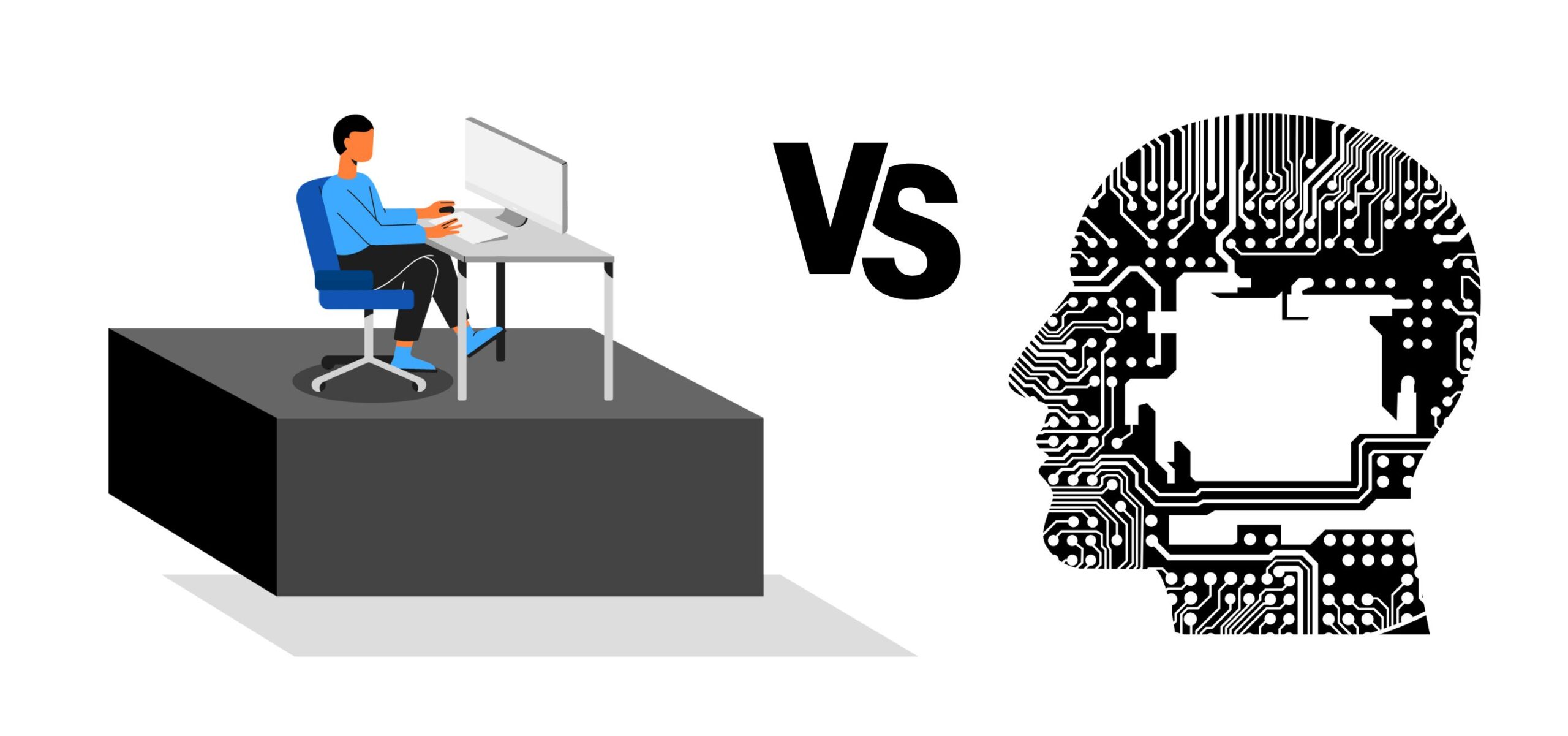The rise of Artificial Intelligence (AI) has sparked a heated debate in the developer community. Will AI render programmers obsolete, leaving a trail of unemployed coders in its wake? Or will these two forces forge a new path together, transforming the landscape of software development?
While concerns about AI automation replacing developers are valid, the future is far less bleak. Here, we delve deeper into the evolving relationship between AI and developers, exploring how they might collaborate rather than compete.
The Rise of the Machines: Can AI Code Like a Human?
AI has made incredible strides in recent years. Machine learning (ML) algorithms can now analyze vast amounts of data, identify patterns, and even generate code. This has led to the development of AI-powered coding tools that can:
- Automate Repetitive Tasks: Imagine the hours saved if AI could handle mundane tasks like data validation, simple code generation, and repetitive unit testing. Developers could then dedicate their time to more strategic problems.
- Suggest Code Improvements: AI can analyze code for inefficiencies and suggest cleaner, more efficient solutions. This can lead to a significant improvement in code quality and maintainability.
- Learn from Developer Behavior: AI can observe how experienced developers approach problems and suggest similar solutions in the future. This can be particularly helpful for junior developers, acting as a virtual mentor.
These capabilities are undoubtedly impressive, but is AI ready to become a full-fledged developer? Absolutely not. Here’s why:
- Limited Understanding: AI struggles with the “why” behind code. It can mimic patterns and generate code, but often lacks the conceptual understanding of real-world applications. An AI might be able to write the code for a simple sorting algorithm, but it wouldn’t understand why sorting is important or how it fits into a larger software system.
- Creativity and Innovation: Software development isn’t just about stringing lines of code together. It requires creativity, problem-solving skills, and the ability to translate complex ideas into functional code – aspects AI currently struggles with. Building an innovative new application requires a deep understanding of user needs and the ability to think outside the box, something humans excel at.
- Domain Expertise: Building software requires understanding the specific domain the software operates in. An AI might be able to code a basic banking application, but it wouldn’t understand the intricate financial regulations or the nuances of user behavior in the financial sector. This domain expertise is crucial for developers to create successful software solutions.
The Human Touch: Why Developers Remain Vital
While AI automates repetitive tasks, developers remain irreplaceable for several key reasons:
- Conceptualization and Design: Developers translate business needs into a technical vision, designing software architecture and user interfaces. This requires an understanding of user pain points, market trends, and the overall product strategy – areas where human intuition remains invaluable. Developers act as the bridge between the business world and the technical world, ensuring software solutions meet real needs.
- Problem-Solving and Debugging: When things go wrong (and in software development, they will!), developers are the ones who diagnose the problem, identify the root cause, and implement fixes. AI may assist with bug identification, but it can’t replicate a developer’s critical thinking and problem-solving skills. Debugging complex software issues often requires a deep understanding of the codebase and the ability to think laterally – skills honed through experience that AI currently lacks.
- Adaptability and Change: The software landscape is constantly evolving. Frameworks, languages, and best practices change rapidly. Developers are adept at adapting to this change, continuously learning and upskilling themselves. They possess the flexibility to navigate a dynamic technological environment, something AI models trained on specific datasets might struggle with.
The Power of Collaboration: A Symbiotic Future
The future of software development lies not in AI vs. developers, but in a cohesive collaboration. Here’s how:
- Increased Efficiency: By leveraging AI to automate repetitive tasks, developers can free up valuable time for more critical activities. Imagine being able to focus on creative problem-solving and architectural design while AI handles the grunt work of data validation and unit testing. This can lead to faster development cycles and a more efficient use of developer resources.
- Enhanced Productivity: AI-powered tools can analyze code, suggest improvements, and predict potential issues. This can lead to cleaner, more efficient code and faster development cycles. AI can act as a virtual code reviewer, identifying areas for improvement and ensuring code adheres to best practices.
This shift in focus from coding to problem-solving will redefine the role of developers. They will become orchestrators of innovation, leveraging AI tools to create more complex and sophisticated software solutions.

